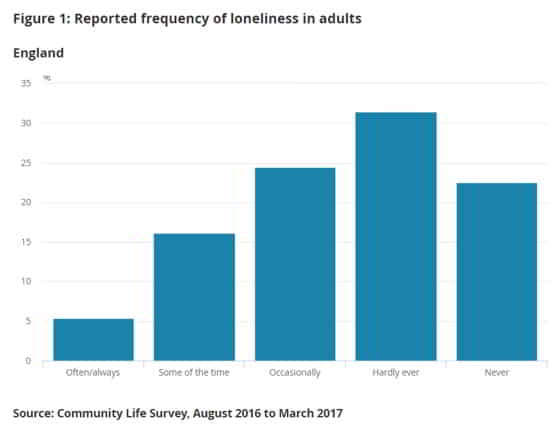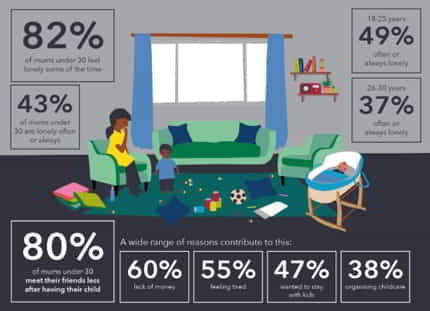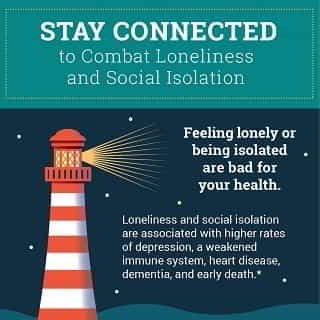LonelyDrive
DO YOU FEEL LONELY, SAD OR ISOLATED?
Loneliness is not just about being old or young and on your own with nobody around, billy no mates or living alone. The bigger majority of people who feel lonely are people who have other people around them, but are not on the same wavelength.
Loneliness can be physical or psychological.
Sometimes we can find ourselves feeling alone and by ourselves but there are crowds around us. It effects all ages for a variety of reasons. It could be family have moved away or died or we are a person who is different from the norm and find it difficult to make friends.
We could be a single parent living in a different town from the town of our birth. There are so many reasons we can feel lonely and alone. Then there’s the psychological aspect of feeling alone and feeling lonely.
Believe it or not senior executives can feel alone. Doctors and professionals work with people all the time but due to their workload they come home and feel isolated from family and friends.
People who have low self-esteem or have stress or anxiety often say they feel lonely. People suffering from phobias or weight issues may feel unhappy with their image and this may cause them to feel depressed. This may stop or deter them from socialising and people interactions. If left unchecked it could become a vicious circle and get much worse.
Here are some initial thoughts about loneliness. GO!
Here are some facts about loneliness. GO!
It’s not always obvious when someone is lonely. It’s not always the obvious people. GO!
It affects millions across the UK every year, and has physical as well as psychological effects. GO!
…when he became the manager at Manchester United. GO!
Yes you can be lonely at work, and not just working from home. GO!
See this video about how damaging loneliness can be. GO!
See these pointers on avoiding loneliness. GO!
If you’re a visitor to our site you can join and download information, assess your own health and create your own action plans, and even contribute to our site. GO!
See what you can do next.. GO!
We have some additional information on this subject. GO!
Some Initial Thoughts

Loneliness - why are we lonely?
YouDrive is all about taking responsibility and finding help, not leaving it until it really is a major issue, recognising the symptoms and then talking to professionals about it. It’s so easy to say and hard to do but somewhere inside you there is that little spark that can push you to find help.
Sometimes loneliness creeps up at different times of the year or could be triggered by an event or situation. If you’re not feeling lonely watch out for the signs of people and loved ones around who might be.
But the interesting thing is you’re not alone, there are millions of people in the UK who feel either physically alone or mentally alone. In fact most of humankind must have felt lonely at some stage, and the point is how long you allow it to hang around before you recognise it and do something about it.
Facts About Loneliness
The ICF Global Coaching Client Studies (commissioned in 2009, 2010 and 2012 and confirmed by PricewaterhouseCoopers), dealt with companies which introduced coaching for their employees.
feel lonely all of the time, as a new Young Women’s Trust report reveals the isolation of motherhood.
adults in England who reported feeling lonely “often” or “always” ONS in 2016 to 2017
said that they were “often” lonely. ONS
of the half of CEOs who express feelings of loneliness believe loneliness hinders their job performance

Loneliness isn’t always that obvious to see
We immediately stereo type loneliness as for single people living alone, loners or social misfits, elderly etc. On the contrary loneliness if more prevalent in everyday normal people. People who feel detached for what ever reason from family, work, society and friends.
Physical loneliness is about your immediate surroundings groups and locations. Some elderly people live alone and most of their relatives may have passed or moved away. Sometimes elderly people are disabled and unable to get about and contact with others is difficult.
You may be a person who has moved jobs to a new city or even country and left your family behind. It is often said that cities, large towns and suburbia are some of the loneliest places on earth, with everyone so focused on their own lives and jobs. Some say they have never spoken to their neighbours.
New mums and new residents in an area can often feel isolated by their location or child care duties and never speak to anyone from day to day. Young people even children can feel lonely due to exactly the same circumstances.
If you’re a new mum with young children your body and mind has just gone through a major event and it’s not easy. Your feelings are often raw and it’s important to recognise that you might need a hand. 20% of mums say they feel lonely. We all have a social responsibility to look out for the symptoms of both types of loneliness and offer support.
Health professionals say loneliness can be a serious medical issue effecting millions of people. Loneliness and feeling lonely have a real impact on our mind and body and can often trigger other illness and issues. If so, many people have experienced loneliness at some stage in their lives, why do we not have a thought for those who feel like that?
We cannot always recognise the symptoms easily and in our busy lives spare a thought for someone else who may be feeling lonely. You can volunteer to chat with people at the same time and at the same time resolve your loneliness issue.

Why do normal people seem to have loneliness
Psychological Loneliness affects millions across the UK each year. That feeling of isolation even when you’re surrounded by people. Whether you’re an executive, mum at home, Doctor, factory worker, manager it effects every group. It is not age discriminative and does not care where you live. Sometimes we come home from work having been surrounded by people all day, head full of work and when we get home we take one hat off and put a parent or housekeeper or owner hat on. .
We commence domestic duties and still feel lonely – why? Often, we feel totally alone and feel as though no one is there for you or you are fighting life’s battles on your own. Your partner, parents, kids don’t understand you and cannot seem to support your feelings. Here are a few interesting facts from psychology today to demonstrate psychological loneliness is a bigger issue than you think and many people suffer from it.
- Loneliness does not depend on how many friends or relationships you have. Loneliness depends entirely on the subjective quality of your relationships—on whether you feel emotionally and/or socially disconnected from those around you. That is why…
- More than 60% of lonely people are married. When married couples no longer share their deepest feelings, thoughts, and experiences with one another it can leave them feeling disconnected and alone. People in such relationships truly believe their spouse cannot offer them the deep connection they would like.
- Loneliness distorts our perceptions of our relationships. Studies have found that merely asking people to recall times they felt lonely was sufficient to make them devalue their relationships. These perceptual distortions often cause lonely people to withdraw even further from the very people who could alleviate their loneliness. Making matters worse, their friends might be hesitant to connect as well.
- Loneliness actually makes us feel colder. Studies found that recalling a time in which we felt lonely made participants estimate the room temperature as being significant colder. It even made their actual skin temperature drop. The idea of feeling ‘pushed into the cold’ resonates from our evolutionary past in which being ostracized from our tribes meant being kept away from the warmth of the hearth and the social group around it. Indeed, our bodies respond to loneliness in dramatic ways.
- Loneliness makes our bodies feel like they are under attack. Loneliness causes an immediate and severe bodily reaction. It increases blood pressure and cholesterol, and it activates our physical and psychological stress responses. Chronic loneliness significantly increases our risk of cardiovascular disease. Over time, people who are chronically lonely have a much higher incidence of cardiovascular disease because their bodies are under constant and unrelenting stress.
- Loneliness is as dangerous as cigarette smoking. Scientists have concluded that given all the drastic ways in which loneliness impacts our bodies, it represents as great a risk for our long-term health and longevity as smoking cigarettes. Indeed, studies have concluded that chronic loneliness increases our risk of an early death by 14%.

Psychological loneliness - Ryan Giggs admits his first taste of management at Manchester United was “lonely”.
Clearly, loneliness represents a hugely important psychological injury and not one we should ignore. Therefore, make sure to take steps when you are lonely, and to educate lonely people around you about the dangers of remaining lonely.
Even executives and professionals could make one day a quarter to visit a person in hospital or visit and chat with old people in a home or offer to help at a care home. It gets you out of the office and stops you thinking about business and focuses you on caring for others. It could be good for both of you.
According to the Harvard Business Review, half of CEOs express feelings of loneliness, 61% of which believe loneliness hinders their job performance.
CEOs and managers alike often feel isolated. Issues and problems often rise to the top and the manager, leader, boss or director picks them up.
Often we don’t feel there is anyone to talk to or anyone who can understand. Sometimes we see it as a sign of weakness talking to someone about the matter especially in senior people or professionals who think: “Don’t be silly, you can’t feel like this.”
Who do they turn to for advice, help, support, guidance? Many won’t, because asking someone inside the organisation might make them look as though they cannot do the job. Many leaders will admit that it is actually incredibly lonely at the top.
There is a real paradox: these bosses find that despite being surrounded by hundreds of people who work for them and having whole teams at their beck and call, they feel terribly alone. Some leaders respond by removing themselves from ‘real’ people even further, coming to rely on a smaller coterie of advisers and support staff. They eat and meet with a chosen few who act as both providers and gatekeepers, keeping the leader’s show on the road.
This may start off as a well-intentioned way of creating organisational effectiveness but it often leads to yet more isolation. Those acolytes close to the centre of power can easily turn from being supporters to sycophants, telling the leader what they want to hear and not what they need to know. Of course, some may tell their leader the occasional home truth; most however tend to be wary of the career-limiting possibilities of too much honesty.
One way a person can avoid psychological work loneliness is to invest in a coach, either formally or informally. Either way most leaders and managers say having a good quality coach can help.

The rising epidemic of workplace loneliness and why we have no office friends
We are living in a landscape of loneliness. We have the world’s first Loneliness Minister, Tracey Crouch, and a survey by the Jo Cox Commission in 2017 revealed that nine million people in the UK are affected by it. Loneliness is not only bad for our minds: it’s bad for our health, too, with research showing that chronic long-term loneliness can be as bad as smoking fifteen cigarettes a day, and can increase the risk of blood pressure, diabetes and obesity.
It is perhaps no surprise, then, that workplace loneliness is on the rise. It almost sounds like the start of a bad joke: how can you spend all day surrounded by colleagues and still feel alone? But with technology replacing human interaction, heavier workloads (which means less socialising) and the popularity of working from home, it is increasingly the case. A 2014 survey by Relate revealed that 42 per cent of us don’t have a single friend at the office – pretty sobering, considering that British people work some of the longest hours in Europe.
“Despite sitting on a floor with hundreds of other people, work can feel really lonely,” says 31-year-old Sarah, who works for a prestigious advertising agency in central London. “The company is huge but my team is small and we don’t really work together. I’m naturally quite shy too, so it can be hard to speak to start a conversation with someone in another department. I often feel left out and excluded.”
Technology is undoubtedly a huge factor. We send emails or instant messages rather than talk to people and have ‘helpful’ new communication programmes like Slack and Trello, which provide virtual team workspaces to save the inconvenience of having to speak in person. “We’re using things like LinkedIn and Facebook, so we see how people are without having to physically check in with them,” says Rachel Lewis, Director of Affinity Health At Work and an occupational psychologist specialising in wellbeing at work. “We’re getting out of the habit of broaching actual conversations.”
The Loneliness Project
THE LONELINESS PROJECT FROM THE CAMPAIGN TO END LONELINESS
“There are half a million older people in the UK who can go a whole week without seeing anyone. Loneliness is cutting lives short and we’re here to change that.
Our new film attempts to show how damaging isolation can be, and how easily loneliness can be solved by us all.
In The Loneliness Project, Joe experiences what life is like living in isolation. He has no phone, internet access or contact with the outside world for a week. At first, Joe seems to enjoy the peace and quiet – but quickly realises the harsh reality of loneliness.”

Here are some pointers that can help towards changing your loneliness regardless of whether its physical or psychological
Research shows that the effect of loneliness on health is similar to high blood pressure or obesity. In fact, it’s as bad for you as smoking 15 cigarettes a day. Loneliness is cutting lives short and the problem is growing.
But we can all take action. We need to build a kinder and more compassionate society. We can all help end loneliness.Here are some tips that might help you address your own loneliness.
Then think about other people who might be lonely.
1. Learn to enjoy your time alone – look out the window and daydream, or think of all the annoying people you currently don’t have to listen to.
2. Busy yourself there’s always something that needs doing, whether that’s tidying the house, the DIY you’ve been putting off since winter or do something completely different.
3. Sponsor a child, or animal and take an active part in their welfare.
4. Search online for local clubs, specialist arts or crafts or associations you can join. Fitness and cycling clubs, amateur dramatics, church choirs if you can sing.
5. Call a friend using facetime, hangouts or other video facilities, don’t just call. Psychologically seeing someone’s face is better than just listening to them.
6. Go on a college course for a new language, learn to play the piano with a teacher, or perhaps join a local meetup.com group to meet members with similar interests.
7. After you have done your own analysis and you feel you cannot pin point what it is then see a therapist. Find a safe environment to talk about how you feel and get one-to-one time with another person.
8. Have a massage or treat yourself to a Groupon spa day or take up yoga therapy or other psychosomatic therapy sessions.
9. Think about others who might be lonely and contact your local charity or support group below and ask to volunteer.
10. No matter what the subject is there are likeminded people out there you can share a common interest with. This can stimulate creativity and bring your mind into normal function mode.
11. Online communities. If you have a passion for something or interest there will be internet groups who have created chat and blogs. Here again you will find people to chat with.
12. Making contact with old friends at work, school, college that you have not seen for years. On the internet via Facebook and other online friendship hubs you can make contact there.
13.If you volunteer as a pet helper at a local RSPCA or PDSA you may wish to take a pet as a companion, dogs and cats make excellent friends and if you rescue one you are saving a life and helping. Additionally, pets provide unconditional love, which can be a great salve for loneliness.
Visit your local health centre or clinic and ask about the different courses available to you such as Cognitive Behavioural Therapy and other types of therapy.
Whatever you do to combat the feeling of solitude or loneliness its often just a state of mind and will pass.
For visitors
Why don't you join us?
You can register to join us as a member, when you’ll be able to download our stuff and comment, or as a YouDriver when you’ll also be able to check your health and set up your own action plans to make some improvements. If you’ve already registered, sign in below. Or let us know what you think.
How to get rid of loneliness and become happy
How to get rid of loneliness and become happy
About one in three adults suffer from loneliness. It can increase your risk of depression and early death, and it can affect your immune system. Loneliness is silent and contagious, but it can be overcome. In her talk, Olivia will share her insights on loneliness and how to beat it.

Next Steps
It doesn’t matter what stage you’re at – it’s important to be the best you can be. At the end of the day it’s about taking personal responsibility – You Drive!
It’s really your choice. You can find out more information about the subject, or see other institutions that can help by going to Support. There you will find organisations, training, coaching, self-help courses and other items to support your personal change. We have also started developing a panel of experts to provide info, advice, help and support.
Get Support
There are times when you need some help to meet your aims – a helping hand. That might be an organisation that can provide you with some help, some specialised information or support, or just getting some background reading material.
You can see these by clicking the Support button here. Some products or services contain affiliate links and we may receive a commission for purchases made through these links
Experts
We are compiling a list of experts who can provide advice, help or specialised services. You will be able to access these experts from anywhere on our site you see our ‘Experts’ symbol. Click the green E to see what our Experts list will look like, with a couple of imaginary ‘experts’ added!
More Information
Scroll down to see more information on this Drive.
If you register you can also download reports, white papers, quizzes and other collaterals. We will never ask you for any financial information, and we’ll only send you the information you want. You can register for our site either above or in the footer below. You can provide your own questions and experiences in order to help other members. We only moderate for spam and inflammatory language – see our moderation policy.
If you’ve found this interesting, then please share it on social media. Choose your network!
More information
Navigating Loneliness
How to Connect with Yourself and Others (A Mental Health Handbook)
Solitude – being alone – is often a choice. Loneliness never is.
The good news is that there is a way to live a life-less-lonely, one that is enriched with connection and fulfilment.
Own Life with Confidence
How to Grow into the Best Version of Yourself: 1 (The Own Life Collection)
Do you truly believe in yourself?
Are you excited about your future?
Would you like to be more confident?
The Anatomy of Loneliness
How to Find Your Way Back to Connection
Have you ever been surrounded by people but felt the pull of loneliness?
”Every moment is a choice to close or to open. Every moment is a choice to separate or to connect. Find around you those people who have chosen to open. Find in your life those people who have chosen the path of connection. And let them walk with you, hand-in-hand, into the world. Be brave enough to connect. Be brave enough to love” — TEAL SWAN
A Biography of Loneliness
The History of an Emotion
Despite 21st-century fears of a modern ‘epidemic’ of loneliness, its history has been sorely neglected.
Mind the mental health charity explain the link between loneliness and mental health.
AgeUK have a section on loneliness – see their advice on how to overcome loneliness
Psychology Today have an interesting article on coping with loneliness called Finding Your Way Out Of The Dark. Read it here.
verywellmind have an article on 9 ways to cope with loneliness
The Campaign to End Loneliness by AgeUK have a report called The Missing Million which identifies people suffering from loneliness, gives examples of how to engage these people and talk about it. Download it here
